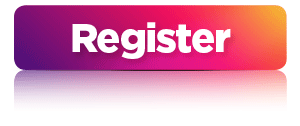 Jon Nones has more than 20 years of experience in content publishing. He started his career as an editor in medical publishing for Wolters Kluwer Health and Elsevier. He then reported financial news for investors as the Deputy Editor of ResourceInvestor.com, where he broke a story about a new silver exchange traded fund (ETF), the first of its kind. Jon was quoted in the Wall Street Journal, and the price of silver increased by 10%. Jon worked for Microsoft on Windows content, where he led an initiative that improved the CSAT of Wisdom upgrade content by 15%. At Expedia, he crafted a new tone of voice for rental car pages. Visitors increased 3%, click-through rate rose 3.7%, and bounce rate fell 2.7%. Now at Amazon, he leads a team that supports the AWS Field with sales enablement content. The team manages a self-service program that increased contributions by 400%, while reducing content support requests by 90%. Our resolution time for support requests improved by 70%.
Jon Nones has more than 20 years of experience in content publishing. He started his career as an editor in medical publishing for Wolters Kluwer Health and Elsevier. He then reported financial news for investors as the Deputy Editor of ResourceInvestor.com, where he broke a story about a new silver exchange traded fund (ETF), the first of its kind. Jon was quoted in the Wall Street Journal, and the price of silver increased by 10%. Jon worked for Microsoft on Windows content, where he led an initiative that improved the CSAT of Wisdom upgrade content by 15%. At Expedia, he crafted a new tone of voice for rental car pages. Visitors increased 3%, click-through rate rose 3.7%, and bounce rate fell 2.7%. Now at Amazon, he leads a team that supports the AWS Field with sales enablement content. The team manages a self-service program that increased contributions by 400%, while reducing content support requests by 90%. Our resolution time for support requests improved by 70%.
Scaling Content Operations with Self-Service
Due to an unprecedented growth in the AWS Field, our monthly intake for content support doubled year over year (YoY). With the growing volume of content to be created and managed, it was increasingly difficult to keep pace, causing a bottleneck. In order to scale to meet the field’s information needs, we transitioned to a more scalable approach—a self-service model. Our mental model: We believe subject matter experts should be empowered to create and maintain sales enablement content without having to rely us for support. In 2020 and 2021, we set goals to drive self-service. We measure results using a ticket deflection ratio (TDR)—the total number of content updates made by contributors divided by the total number of support tickets submitted to our team. We use this metric because we want to see the number of updates made by contributors increase while support tickets to our team decrease. In 2020, we saw a YoY improvement of 166%. In 2021, we saw a YoY improvement of 370%!
In this session, attendees will learn:
- How to define the scope (what is and isn’t self-service)
- How to create an ownership model (what is centralized vs. decentralized)
- How to create governance policies (authoring guidelines and expectations)
- How to create a authoring certification process
- How to develop and maintain training resources (onboarding, ongoing, and just in time)
- How to implement an authoring workflow (self-service vs. not self-service)
- When and where to offer additional support
- How to measure success


